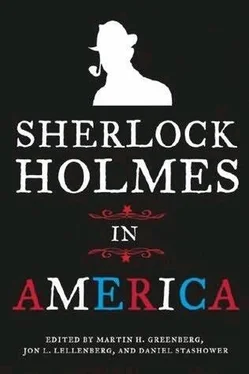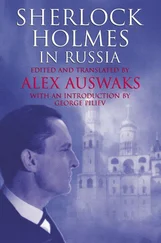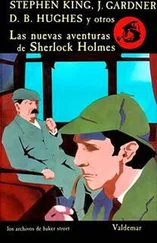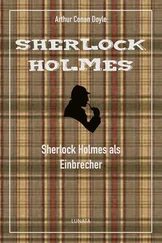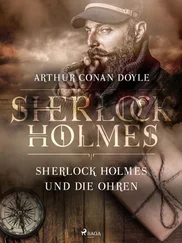“It’s beneath me!” Harry cried, brandishing the butter knife. “Ten different acts for a dime! Ten performers lined up along the platform, displayed like prize hogs at a county fair! Jugglers and bearded ladies and rubber men and tattooed girls and-”
“All right, Harry,” said Bess. “Calm down. It’s just that there isn’t much-”
“I am Harry Houdini, the justly celebrated self-liberator! The man whom the Middletown Daily Argus called ‘a most winning and competent entertainer.’”
“High praise indeed, Harry,” continued Bess in a soothing tone, “but even Houdini has to pay the rent. We haven’t worked in nearly a month.”
Harry grunted and resumed buttering his toast.
Bess pressed her advantage. “And Mr. Patrell was good enough to come and see us here at home, rather than bring us all the way downtown.”
“Ha!” cried my brother. “Dash would have been perfectly happy to ride down to 13 thStreet. Mr. Patrell offered to come here only because Mama gave him a slice of blackberry torte the last time.”
Harry was undoubtedly correct about this, as my mother’s skills with a pastry brush and dough docker were legendary. “Look, Harry,” I said, “the important thing is that he has an opening. Nobody wants to work in the dime museums forever, but we need to keep the wolf from the door. At least let’s hear what Mr. Patrell has to say, all right? If you don’t like his offer, we’ll find something else.”
“Very well,” said Harry. “I will listen. Apart from that, I promise nothing.”
At the appointed hour Mr. Patrell appeared at the door of the flat, greeting my mother with elaborate courtesy. His mood was buoyant, but his face looked pale and gaunt, and he wore his left arm in a heavy canvas sling. Stepping inside, he waved off our questions about his bandaged arm, assuring us that it was only a minor injury. Placing his dove-grey homburg on the sideboard, he took a seat at the breakfast table and grinned broadly as a slice of dobos torte was placed before him. Bess, meanwhile, chatted amiably with him about the potentially ruinous effects of the recent consolidation of New York’s five boroughs. At length, when Patrell had submitted the misdeeds of Mayor Van Wyck to a lengthy analysis, my sister-in-law attempted to guide the conversation to business.
“Do I understand, sir,” said Bess, “that there may be an opening at Patrell’s Wonder Emporium?”
“Ah!” said the proprietor brightly, waving his good arm in the air. “Allow me to demonstrate!” Pulling a linen pocket square from his coat, he dabbed at his lips and gave a discreet cough. Then, with a brief flourish, he reached into his mouth and withdrew a large, whole walnut in its shell. “My mouth is empty,” he said, turning to my brother to allow a brief examination, “and I shall take a sip of tea to demonstrate that my esophageal passages are clear. But see!” With a sweep of his hand he withdrew a second walnut, placing it beside the first on the edge of the kitchen table.
This peculiar display was repeated four more times until there was a neat row of six walnuts arrayed before him. “What do you think?” he asked, waving a hand over the harvest. “Rather good, is it not?”
I should perhaps explain that Mr. Patrell’s exhibition was not without precedent. At that time the sideshows and carnivals were experiencing a modest vogue of what was called the “regurgitator act,” an outgrowth of sword-swallowing and water-spouting. The regurgitator act would take many curious forms before the fad had run its course. Some regurgitators would swallow and then reproduce small stones and rocks, while other even hardier souls turned their skills to goldfish and frogs. One inventive practitioner found a means of swallowing assorted small objects-coins, thimbles, and the like-only to reproduce them in the order called for by his audience. It must be said that regurgitators were not my favorite class of entertainer, and I disliked sharing a stage with them. The act, depending as it did upon grotesquerie, tended to put the audience in a skittish, even hostile frame of mind. Worse yet, it produced a foul odor.
My sister-in-law shared my sense of distaste. “Mr. Patrell,” said Bess, “I have always found acts of this type to be unseemly.”
“Still,” I said, eager not to offend a potential employer, “six walnuts! That’s rather good.”
“I can do seven,” said Harry. “Plus a potato.”
“Can you?” asked Patrell, looking a touch crestfallen. “Well, I’m still something of a novice. My difficulty is this accursed arm sling. I can’t juggle with one arm, and if I can’t juggle, how am I going to get the marks to pony up their dimes?”
It was a fair question. The sight of Gideon Patrell juggling a set of Indian clubs was a familiar one in New York City. He would stand on the sidewalk outside of his Wonder Emporium before each show doing wondrous cascades and showers as a crowd gathered to watch. This was his version of the time-honored “bally,” the free act performed outside a carnival tent while the outside talker-we didn’t call them “barkers” in those days-enticed the crowd to “step right up” and pay their admission. I was a competent juggler myself at that stage of my career, but Patrell was an artist. His overhand-eight pattern was a wonder to behold.
“Mr. Patrell,” said Bess, folding her hands, “I am truly sorry for your difficulty, but surely there are better options than this? Do you honestly believe that coughing up a handful of walnuts will bring in paying customers?”
Patrell’s face clouded. “What am I to do?” he asked. “I need something to go along with the spiel.”
“I could do my handcuff act,” said Harry. “That will bring them running!”
“God, Harry, don’t start blathering on about that handcuff act again! What do I need with a-what do you keep calling yourself? An escapitator?”
“An escapologist.”
“Whatever. Nobody’s ever going to want to see a guy slip out of a pair of handcuffs, Harry. Stick with your magic act.”
Harry folded his arms.
“You’ll forgive me for asking, Mr. Patrell,” I said, “but if you don’t want Harry to do his escape act, why are you here?”
“I need a magician-I need a ‘King of Kards.’”
“What happened to Addison Tate?” I asked. “Only last month you were telling me that he was the best card mechanic you’ve ever had.”
“Tate!” Patrell’s face darkened. “I took that man into my troupe when no one else would have him! Gave him two slots on the bill! And this is how he repays me!”
Harry leaned forward. “He skipped out on you?”
“Skipped out on me! No, Houdini-he shot me!”
Bess and I were too startled to speak, but Harry appeared delighted by this news.
“Ah!” he cried, bridging his fingertips. “A mystery!”
“A mystery? There’s no mystery about it,” cried Patrell. “He took out a gun and shot me! And when I get my hands on him, he’ll regret the day he crossed my path. Even with one arm, I’ll give him a thrashing.”
“Your case fills me with interest,” said my brother. “Pray give us the essential facts from the commencement, and I can afterwards question you as to those details which seem to me to be most important. Omit nothing. It has long been an axiom of mine that the little things are infinitely the most important.”
Patrell stared. “I must say, Houdini, you’re acting very strangely. What in the world are you going on about?”
The answer, of course, was Sherlock Holmes. My brother, though not a great reader, was a devoted admirer of the Great Detective, whose adventures he followed religiously in the pages of Harper’s Weekly until the death of Mr. Holmes at the hands of Professor Moriarty, an event that left Harry despondent for several weeks. Even now, roughly five years later, Harry refused to accept that the detective’s adventures had come to an end. Whenever the subject was broached, he would simply shake his head and insist that Dr. Watson’s account of the events at the Reichenbach Falls must have been a deception of some kind. “The good doctor must have had his reasons,” he would say.
Читать дальше
